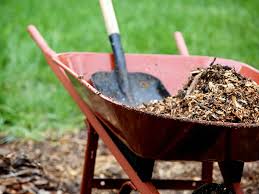
Poets have a knack for universal mirrors. The adjective, in this case, is key. Yes, the poet sees himself in an ordinary object and writes about it, but he doesn’t forget the reader. If the reader, too, identifies, and sees HERself, then and only then is the Eureka! moment universal and thus, complete.
This truism struck home while browsing the Fall 2019 issue of Rattle. On p. 21, I came across old friend from the Midwest, Ted Kooser. The title of Ted’s poem is “Wood Chips,” and yes, Virginia, you’d better believe that even wood chips can serve as a mirror.
How so? Here you go:
Wood Chips
Ted Kooser
I kicked them up pruning a rose bush
at the end of October, just chanced
upon them because they were there, by then,
after thirty years there, grown over
by those grasses you find among roses.
You know how when high water recedes
in a pond that’s been flooded by rains
it sometimes leaves an intricate bed
of bark and twigs woven into the reeds?
Those wood chips were matted like that,
and were driftwood gray, gray driftwood,
although I remembered them fresh
from the chipper, the color and fragrance
of slices of peach, or of rose petals
fallen away. I often find myself now
picking up things and looking at them
both as they are and as they were,
as I am, also, both, both pink and gray.
Ted Kooser is one of those rare poets who can still get away with what I call “Frosties.” You guessed it. A “Frosty” is a Robert Frost-like poem where man meets nature, man sees self in nature, reader shoves man aside because she, too, sees herself in nature. It’s a “Hey, that’s me in God’s mirror!” moment that still works even though nature poems are not exactly the rage in our tempestuous times.
Now when I look at last spring’s wood chips out in the flower beds, I can think of myself first in the pink of life and then, inexplicably, in the gray of it (and you can bet I’ll be demanding some answers of my Maker because that was fast).
This is how poetry is done, Grasshopper. Or one way of thousands, I should say.